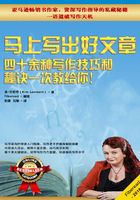Thus, notwithstanding this seeming conflict of practical reason with itself, the summum bonum, which is the necessary supreme end of a will morally determined, is a true object thereof; for it is practically possible, and the maxims of the will which as regards their matter refer to it have objective reality, which at first was threatened by the antinomy that appeared in the connection of morality with happiness by a general law; but this was merely from a misconception, because the relation between appearances was taken for a relation of the things in themselves to these appearances.
When we find ourselves obliged to go so far, namely, to the connection with an intelligible world, to find the possibility of the summum bonum, which reason points out to all rational beings as the goal of all their moral wishes, it must seem strange that, nevertheless, the philosophers both of ancient and modern times have been able to find happiness in accurate proportion to virtue even in this life (in the sensible world), or have persuaded themselves that they were conscious thereof.For Epicurus as well as the Stoics extolled above everything the happiness that springs from the consciousness of living virtuously; and the former was not so base in his practical precepts as one might infer from the principles of his theory, which he used for explanation and not for action, or as they were interpreted by many who were misled by his using the term pleasure for contentment; on the contrary, he reckoned the most disinterested practice of good amongst the ways of enjoying the most intimate delight, and his scheme of pleasure (by which he meant constant cheerfulness of mind) included the moderation and control of the inclinations, such as the strictest moral philosopher might require.He differed from the Stoics chiefly in making this pleasure the motive, which they very rightly refused to do.For, on the one hand, the virtuous Epicurus, like many well-intentioned men of this day who do not reflect deeply enough on their principles, fell into the error of presupposing the virtuous disposition in the persons for whom he wished to provide the springs to virtue (and indeed the upright man cannot be happy if he is not first conscious of his uprightness; since with such a character the reproach that his habit of thought would oblige him to make against himself in case of transgression and his moral self-condemnation would rob him of all enjoyment of the pleasantness which his condition might otherwise contain).But the question is: How is such a disposition possible in the first instance, and such a habit of thought in estimating the worth of one's existence, since prior to it there can be in the subject no feeling at all for moral worth? If a man is virtuous without being conscious of his integrity in every action, he will certainly not enjoy life, however favourable fortune may be to him in its physical circumstances; but can we make him virtuous in the first instance, in other words, before he esteems the moral worth of his existence so highly, by praising to him the peace of mind that would result from the consciousness of an integrity for which he has no sense?
On the other hand, however, there is here an occasion of a vitium subreptionis, and as it were of an optical illusion, in the self-consciousness of what one does as distinguished from what one feels- an illusion which even the most experienced cannot altogether avoid.The moral disposition of mind is necessarily combined with a consciousness that the will is determined directly by the law.Now the consciousness of a determination of the faculty of desire is always the source of a satisfaction in the resulting action; but this pleasure, this satisfaction in oneself, is not the determining principle of the action; on the contrary, the determination of the will directly by reason is the source of the feeling of pleasure, and this remains a pure practical not sensible determination of the faculty of desire.Now as this determination has exactly the same effect within in impelling to activity, that a feeling of the pleasure to be expected from the desired action would have had, we easily look on what we ourselves do as something which we merely passively feel, and take the moral spring for a sensible impulse, just as it happens in the so-called illusion of the senses (in this case the inner sense).It is a sublime thing in human nature to be determined to actions immediately by a purely rational law; sublime even is the illusion that regards the subjective side of this capacity of intellectual determination as something sensible and the effect of a special sensible feeling (for an intellectual feeling would be a contradiction).It is also of great importance to attend to this property of our personality and as much as possible to cultivate the effect of reason on this feeling.But we must beware lest by falsely extolling this moral determining principle as a spring, making its source lie in particular feelings of pleasure (which are in fact only results), we degrade and disfigure the true genuine spring, the law itself, by putting as it were a false foil upon it.Respect, not pleasure or enjoyment of happiness, is something for which it is not possible that reason should have any antecedent feeling as its foundation (for this would always be sensible and pathological); and consciousness of immediate obligation of the will by the law is by no means analogous to the feeling of pleasure, although in relation to the faculty of desire it produces the same effect, but from different sources: it is only by this mode of conception, however, that we can attain what we are seeking, namely, that actions be done not merely in accordance with duty (as a result of pleasant feelings), but from duty, which must be the true end of all moral cultivation.















